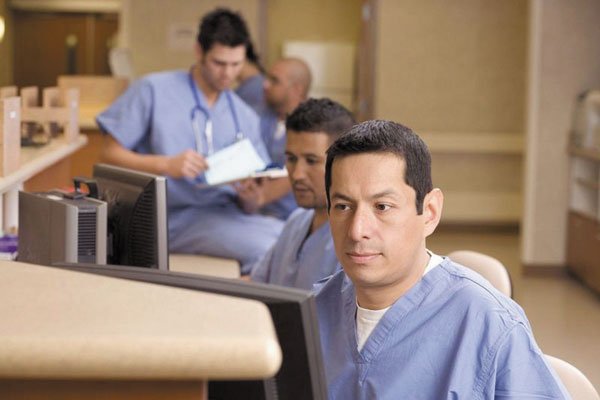as a psychologist in her native Colombia, Martha Lucia Ossa
counseled children who were sexually abused and helped ex-guerrilla
soldiers readjust to society.
Georgia East and Alexia Campbell – Sun Sentinel
As a psychologist in her native Colombia, Martha Lucia Ossa counseled children who were sexually abused and helped ex-guerrilla soldiers readjust to society.
Here, the only job she could find was work as a live-in nanny, caring for two kids, cleaning house and cooking.
“It’s not easy to start all over again,” said Ossa, who moved here to be closer to her family. “Here you’re really starting from zero.”
A recent study by the Migration Policy Institute showed that, nationally, more than 1.3 million college-educated immigrants are either unemployed or working in jobs such as dishwashers, taxi drivers or cooks.
Many professionals arrive to find their licenses are worthless here. And the process to get recertified can take years. Many also face a language barrier – forced to relearn technical medical, engineering or other professional terminology in English. Making matters worse, in quickly advancing fields such as medicine or technology, the longer they are away from their career, the more they can fall behind.
“This is an issue that has to be addressed as soon as these immigrants arrive,” said report co-author Jeanne Batalova, a policy analyst at the institute. “The longer many of these people stay in these unskilled jobs, the more difficult it is for them to make the right connections and they get trapped.”
The report points out that immigrants from Latin America and Africa fared worse than their European and Asian counterparts. The disparity was blamed in part on the level of English language skills and, in some cases, immigration status.
But even with legal status, it’s a hard climb up the professional ladder for some immigrants, says Ira Guevra, editor of the South Florida newsletter El Paracaidista.
Once a month, the newsletter holds a forum on how foreign-born professionals can obtain state licensing for their fields. The forum delves into the kinds of exams needed for certain specialties, internships and financial assistance available for college. It also addresses some culturally sensitive issues, like learning the American way of interviewing for a job.
It draws a mix that includes doctors, dentists and engineers searching for answers on how to get back into their fields. Some have been here a year or two, others decades. Ossa attended the forum to find out how she could get her psychology degree recognized by the state.
“Many worthy people drift along the way and do not work in their areas of expertise, simply because they don’t know where to start,” says Guevara.
Broward County (Fla.) Refugee Services offers a Career Ladder Program that helps refugees and those with asylum status seek employment and training opportunities. The program helped Moronikai Olympio, a native of Togo, find a job related to her degree in economics.
When the native French-speaker first moved here three years ago she braided hair for a living. At one job, she didn’t last long, she said, because her boss spoke little English and there was a lot of miscommunication.
“I kept telling myself God brought me here, so there is a purpose,” said Olympio.
With Career Ladder’s referral, Olympio got a job recently in the business department of a health care company and she’s taking courses to improve her English. Her goal is to work as an accountant or certified financial planner, she said.
Jose Zevallos was a dentist with his own practice in Peru. He had six years of schooling after high school to become certified. But when political unrest prompted him to move to the United States five years ago, he had no choice but to take a job waiting tables. Now he’s relearning everything, including the technical dental terms, in English.
He recently passed the three exams necessary to become a certified dental hygienist and landed a job in Lauderhill.
But he hasn’t given up his dream of becoming a dentist again. When he’s not working, he’s usually studying.
“Little by little I’ve been taking courses and regaining my confidence,” he said.













